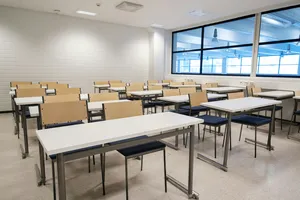Education is a fundamental aspect of society, and every country has its unique education system. In Turkey, the education system has undergone significant changes over the years, aiming to improve the quality of education and ensure that students receive a well-rounded education.
The Turkish education system has a distinct character, reflecting the country's culture and traditions. From the structure of the academic year to the emphasis on practical experience and extracurricular activities, the Turkish education system is unique in many ways.
In this article, we will learn how Turkish education differs from other education systems and what makes it stand out.
The Turkish Education System
The Turkish education system is divided into primary education, secondary education, and higher education. Primary education lasts four years, and students are taught basic subjects such as Turkish, mathematics, science, and social studies.
Secondary education is divided into two parts: lower secondary education, which lasts for four years, and upper secondary education, which lasts for three years.
In upper secondary education, students choose a field of study and receive specialized education in that area.
Semesters and Breaks in Turkey
The Turkish academic year is divided into two semesters: the first semester starts in September and ends in January, and the second semester begins in February and ends in June. There is a two-week break between the semesters in January and a three-month summer break from June to September. These breaks allow students to relax and recharge before the next semester.
The School Report in Turkey
Students receive a school report at the end of each semester that provides information about their academic performance. The report includes grades for each subject and comments from teachers about the student's strengths and weaknesses. Parents are encouraged to attend parent-teacher conferences to discuss their child's progress and to identify areas where they need to improve.
Turkey Education Attendance
Education is compulsory in Turkey for children between the ages of six and 14. Students are expected to attend school regularly, and parents must provide a valid excuse for absences.
Attendance is closely monitored, and students who miss more than a certain number of days may be required to repeat the academic year.
Summer Placement in Turkey
During the summer break, students have the opportunity to participate in summer placement programs, where they can gain practical experience in their field of study. These programs are designed to help students develop their skills and prepare them for the workforce. Students can also attend summer schools to improve their academic performance and gain extra credits.
Social Activities or Social Interactions During This Lesson in Turkey
In addition to academic studies, Turkish schools also offer a variety of social activities and extracurricular programs. These activities provide students with the opportunity to develop their interests and to socialize with their peers. Some popular activities include sports, music, drama, and art clubs. These clubs help students to develop their skills and to express themselves creatively.
Conclusion
The Turkish education system is unique in many ways, from its structure to its emphasis on practical experience and extracurricular activities. While there are similarities with other education systems, the Turkish system has a distinct character, reflecting the country's culture and traditions.
Through its focus on providing a well-rounded education, the Turkish system aims to prepare students for career and personal success.
Are you seeking to apply for a residence permit in Turkey? As the largest online resource for expats living in the country, Ikamet will provide you with everything you need regarding a residency. Become our subscriber today!












Member discussion